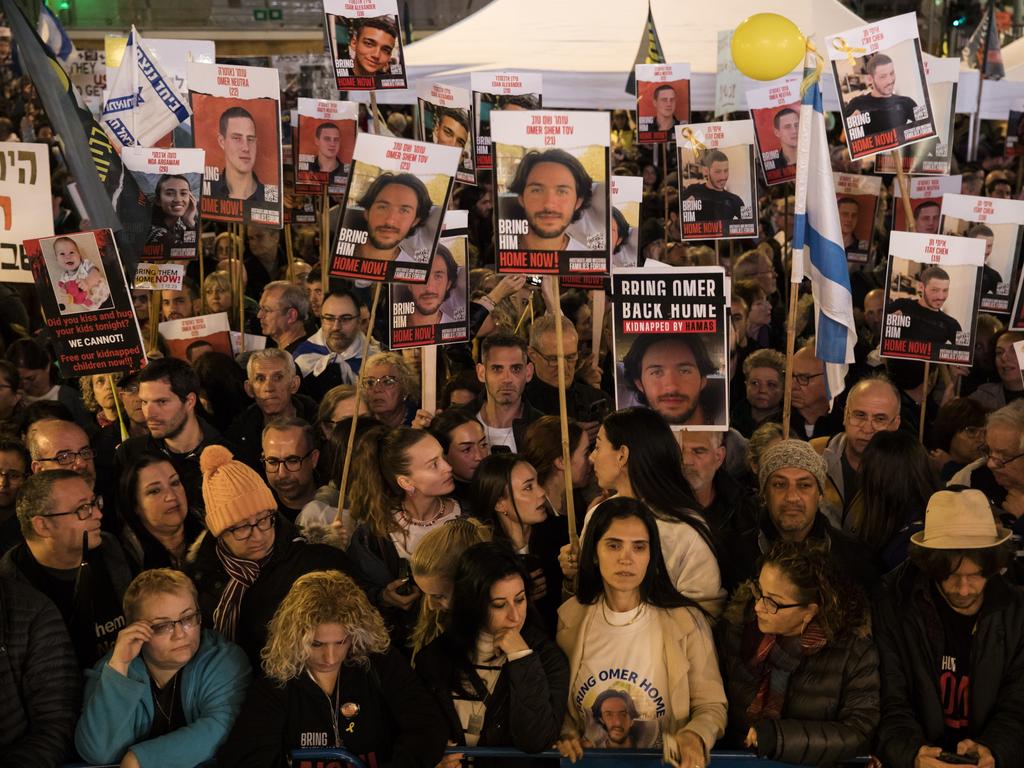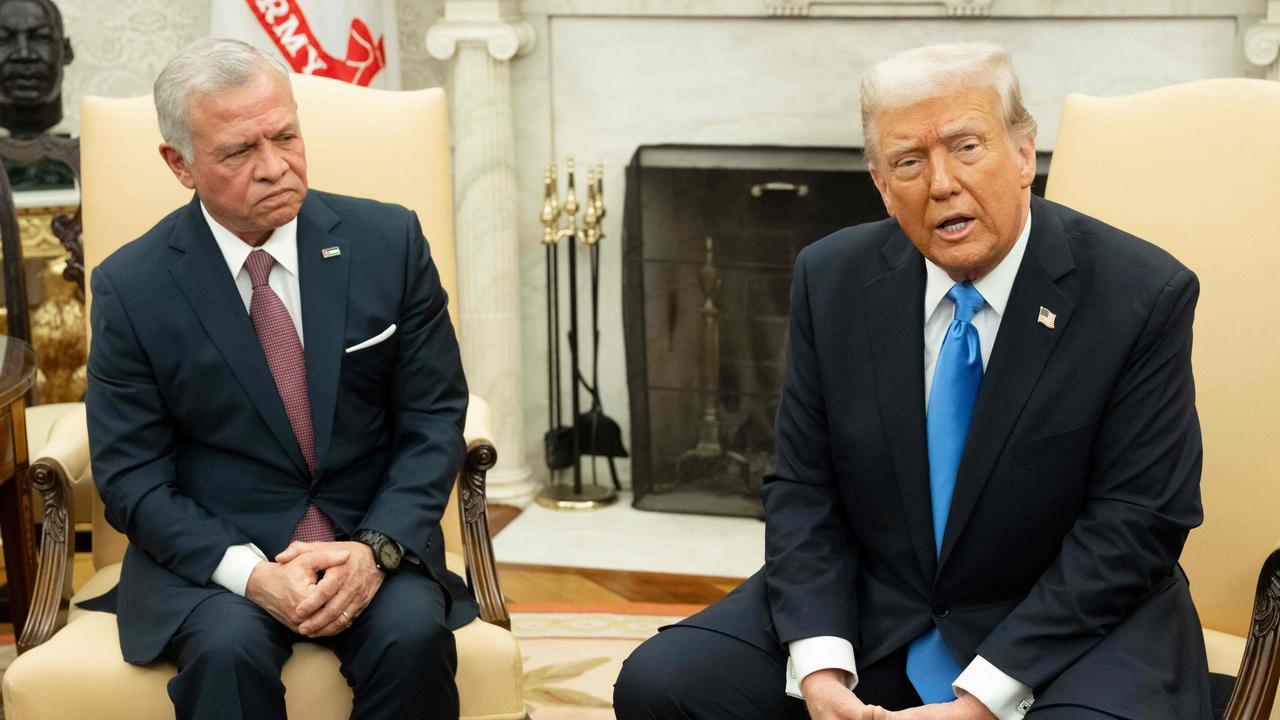Divisions in Israel’s war cabinet emerge
Wartime leaders are diverging on the two biggest dilemmas they face as a group.
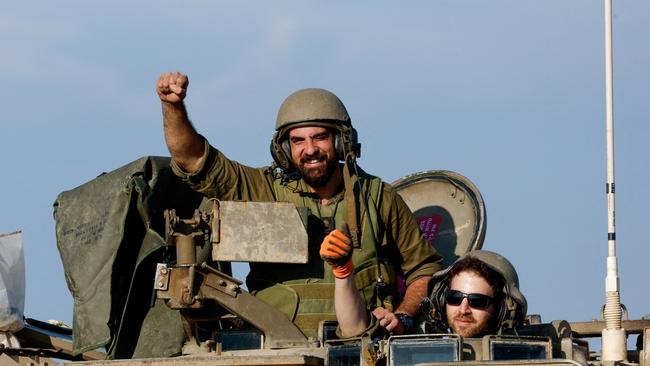
Rifts among Israel’s war cabinet are spilling into public view, threatening to undermine the country’s military strategy in Gaza at a crucial stage in the conflict.
The small collection of wartime decision makers — Prime Minister Benjamin Netanyahu, Defence Minister Yoav Gallant and former head of the Israeli military, Benny Gantz — is diverging publicly on the two biggest dilemmas they face: whether Israel should negotiate to end the conflict and free the hostages, and who should govern the bombed-out strip once the war is over.
The divisions in Israel’s cabinet reflect longstanding personal and professional disagreements between the politicians, who came together after the Hamas attack on October 7 that killed 1200 Israelis to form a national unity government to prosecute the war and reassure Israelis.
They were united by a common enemy in Hamas. But as pressure has mounted from the Biden administration to limit Palestinian civilian deaths in Gaza, and the government has failed to return all the hostages, divisions between the leaders have re-emerged.
Mr Gallant on Monday said that “political indecision” about who would take responsibility for post-war Gaza would hurt the military campaign.
In a plan he articulated this month, Mr Gallant has called for Palestinian self-governance and a multinational task force led by the US, with European and Middle Eastern partners, to oversee the rehabilitation of the strip. The US wants a revitalised Palestinian Authority to take over with help from Arab states.
Mr Netanyahu, under pressure from his far-right coalition partners to block the Palestinian Authority from governing in Gaza, hasn’t so far articulated a vision for post-war governance there.
“The end of the military campaign must be based on a political act,” Mr Gallant said Monday.
Spokespeople for Gallant and the prime minister’s office didn’t immediately respond to requests for comment.
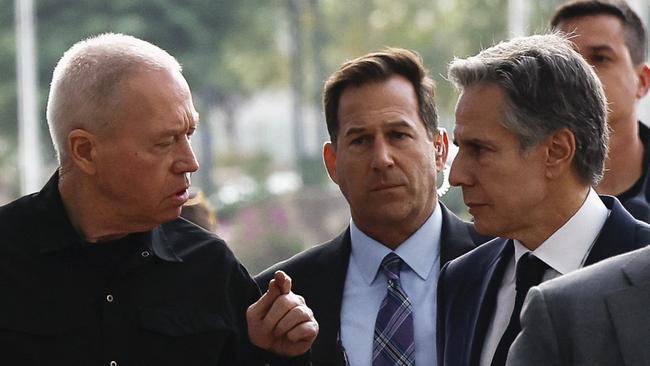
The Prime Minister’s Office said Tuesday that hostages in Gaza would receive medicine for the first time under an agreement arranged by Israel’s spy agency and Qatar. The deal, first announced last week, will involve two Qatari air-force planes transporting French-sourced medication on Wednesday to Egypt, where Qatari representatives will escort the medical aid into Gaza to “their final destinations,” the office said.
Under pressure from the families of hostages held by Hamas and other militants in Gaza, Gantz, the head of the National Unity Party, and his deputy, Gadi Eisenkot, are pushing to enter talks with Hamas to bring home the roughly 130 captives still held in the enclave, according to Israeli media reports widely discussed among political analysts.
Mr Netanyahu and Mr Gallant, both in the ruling Likud party, meanwhile say that maintaining military pressure on Hamas will force the group to make concessions, according to the reports.
“There’s clearly a distinction here between the two sides,” said Reuven Hazan, part of the political-science department at the Hebrew University of Jerusalem. “If it was up to Gantz and Eisenkot, and tomorrow Hamas made an offer of ending the conflict in exchange for releasing all of the hostages, they would go for it. Netanyahu would say no.”
While the prime minister and his defence minister are in agreement on continuing the war, they are increasingly at odds over who should govern Gaza after it — a question becoming more urgent as Israel moves to a lower-intensity phase of its war and seeks to prevent a vacuum emerging in the enclave.
Hamas appears to be seeking to exploit the war cabinet’s divisions. It released a video Monday of what it said were dead bodies of two hostages held in Gaza. A third hostage, Noa Argamani, 26, was shown alive in the video, saying that the two dead hostages had been killed in Israeli airstrikes and calling on the Israeli government to end the war.
The two hostages were identified on Tuesday as Itai Svirsky and Yossi Sharabi by Kibbutz Be’eri and the Hostages and Missing Families Forum, which confirmed their deaths.
Mr Gallant on Monday said the most intensive phase of fighting is complete in northern Gaza, adding that the Israeli military is close to completing intense fighting in the south, around the city of Khan Younis.
It isn’t clear that the entire Israeli security establishment agrees with that assessment. When asked later on Monday about Gallant’s comments, Israeli military spokesman Daniel Hagari pushed back, saying that fighting in the south “will take us time.” The military had more work to do both above ground and below ground in the vast tunnel network built by Hamas, Rear Admiral Hagari said.
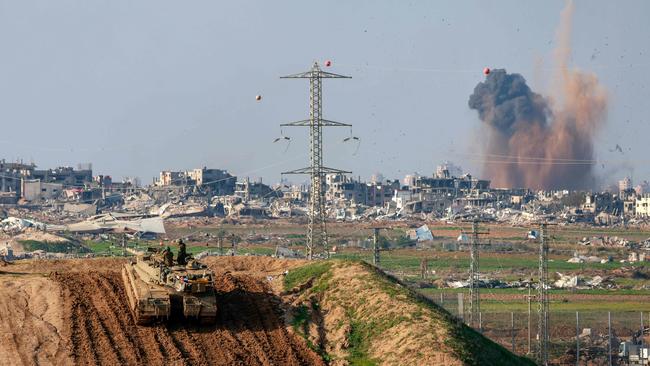
Mairav Zonszein, the senior Israel analyst for the International Crisis Group, said that the divisions in the country’s war cabinet are creating a kind of paralysis that is preventing the government from executing an effective strategy.
That, she said, could end with Israel reoccupying the Gaza Strip, much as it occupied southern Lebanon for 15 years from the 1980s. “There is no exit strategy,” she said.
Now in its fourth month, the Israeli campaign has destroyed swaths of the enclave, displaced nearly two million people and resulted in widespread shortages of food and medicine. More than 24,000 Palestinians have been killed since the war began, the majority of them women and children, according to Palestinian authorities whose numbers don’t distinguish between combatants and civilians.
Israel says it has killed thousands of Hamas fighters and disrupted the group’s ability to launch attacks against Israel. But Israel hasn’t achieved its initial war aim of destroying Hamas completely. The Israeli military is still seeking to find and destroy tunnels where Hamas’s leader in Gaza, Yahya Sinwar, and others are believed to be hiding.
Gallant is likely driven by a mix of political and military calculations when he publicly challenges Netanyahu for refusing to discuss plans for a day after, Zonszein said.
“I think he feels a responsibility toward sending 20-year-olds on a mission that is clearly failing,” she said.
Anat Peled and Carrie Keller-Lynn contributed to this article
The Wall Street Journal

